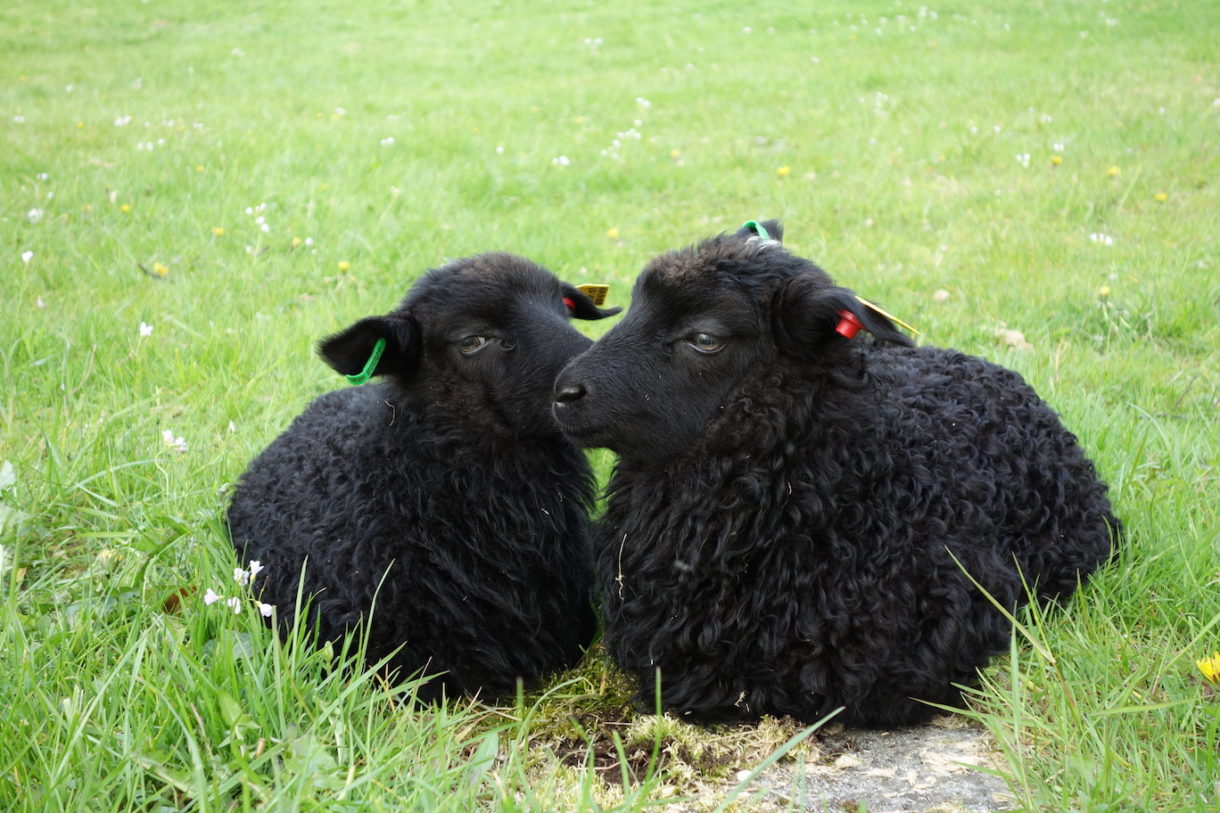6 Sad Reasons Why A Family Creates A Black Sheep

“I’m the black sheep of my family,”
said the young man who sat before me in my therapy office. I tried to imagine this adorable, sad young man being the “black sheep” of anything. I couldn’t.
Generally considered the outcast of the family, the black sheep is typically assumed to be an oddball. Furthermore, the rest of the family believes that the black sheep brought this upon himself.
It is true that sometimes the black sheep is indeed “odd” by anyone’s standards (sometimes the result of a hidden mental illness). Or she may be a sociopath who violates the family’s boundaries and care, so that the family has to exclude her to rightfully protect themselves.
But surprisingly, very seldom is either of these scenarios actually the case. Many, many black sheep are lovable folks with much to offer their families and the world. In fact, they are often the best and brightest. They may be the most creative of the family, or the one with the most powerful emotions.
In truth, the world is full of black sheep. Think hard. Does your family have one? This question is not as easy to answer as it may seem, for many black sheep are not physically excluded from the family. For most, it’s much more subtle. The exclusion is emotional.
Three Signs That Your Family Has a Black Sheep:
- One member often, over a long period of time, seems hurt or angry for no apparent reason.
- One person is often, and on a long-term basis, talked about negatively behind his back. “He’s so annoying,” “What a weirdo/disappointment/loser/fill in the blank.”
- One member is subtly not invited to certain family occasions or left out of the loop on family news.
So if most black sheep aren’t actually weirdos who brought their exclusion upon themselves, what would cause a family to treat one of their own this way? The real cause does not lie within any individual family member. No. Instead it’s a product of family dynamics.
Here are the sources that I see most often.
The Six Top Family Dynamics Which Result in a Black Sheep:
- The child who has the least in common with the parents. This child sticks out because of his personality, temperament or interests. The parents are baffled by him and inadvertently treat him differently, which spreads to the siblings.
- The best and the brightest. This child threatens to outperform or outshine one or both of the parents. Either consciously or unconsciously, the parents sabotage her to hold her back. This way, they won’t lose her and they won’t have to feel badly about themselves in comparison to her.
- The child most prone to depression or anxiety. The child with intense or dark feelings or thoughts which the parents cannot understand may frighten them. At a loss about how to help, they may just keep him at a distance.
- Sibling rivalry. In this family, there is simply not enough attention or love to go around. One or both of the parents is limited in some way; by mental illness, personality disorder, or substance abuse for example. The siblings must jockey for whatever they can get.
- A parent who despises himself deep down. This parent can appear to be quite loving of her children, so she can be difficult to spot. But she is unable to tolerate certain aspects of herself, so she projects those traits onto a chosen child, and despises him instead. It is an unconscious coping mechanism that happens outside of the parent’s awareness.
- Childhood Emotional Neglect (CEN): the child who is the most invisible. In this family, all of the children may get the subtle (or not-so-subtle) message that their feelings don’t matter. But one is better at hiding his own needs, feelings, and self than the others. This child literally disappears from the family’s radar screen and is ignored. He becomes persona non grata. He is the one who matters the least.
With any of the six causes above, the excluded or targeted child senses early on that he must be different, bad or inferior. In a case of self-fulfilling prophecy, he learns to play his role in the family. Often, he plays it very well.
What should you do if you recognize your family in these words? It is indeed difficult to turn around entrenched family dynamics like these. But you can make a difference:
Choose to see your family through a more complex lens.
Ask yourself: Is this right? Is this the person that I want to be? Is this how I want to treat my sibling or child?
Share this article with chosen members of your family.
Look at your black sheep with fresh eyes and notice what you’ve never seen before.
Open your heart and your little section of the family circle.
Let your black sheep know that you reclaim him.
You are right to be baffled and confused. Nothing is as simple as it has always seemed. Know that you have value. And it is not your fault. Watch for a future post: Message to the Black Sheep of the World.
To learn more about Childhood Emotional Neglect, how and why it happens, and how it affects all of the children in the family see Running on Empty No More: Transform Your Relationships
To learn more about Childhood Emotional Neglect, see my first book Running on Empty.
This article was originally published on Psychcentral.com and has been republished here with the permission of the author and PsychCentral
